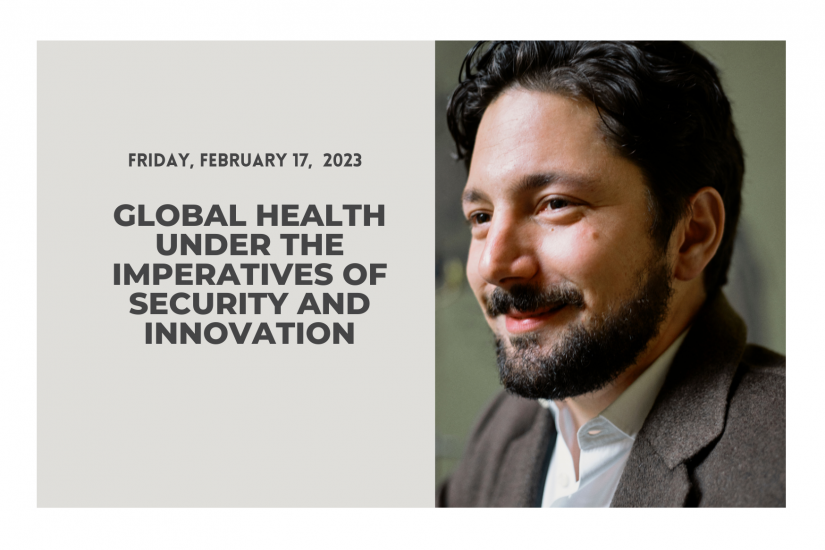
ABSTRACT
Global Health Security (GHS) has emerged as a key field in International Relations (IR) in recent years. COVID-19 has further increased its topicality as the pandemic has exposed severe shortcomings of the GHS regime. The drastic failures of health security governance have triggered debates and contestations over its purpose, means and leading values. Hence, global health is among the key sites where international power relations and global security governance are currently being reimagined and renegotiated.
This talk provides a comprehensive overview of the evolution of GHS, and situates the current developments within broader debates in IR. To do so, the talk centers on the global antibiotics crisis as a keyhole to explore the current issues at stake in these debates. The antibiotics crisis is rooted in the fact that bacteria increasingly develop resistance against the antibiotic drugs that are commonly used against them – a phenomenon called ‘antimicrobial resistance’ (AMR). Because antibiotics are such a central pillar to public health and modern medicine, AMR is recognized by the WHO and other high-ranking international organizations as a looming public health catastrophe of utmost international concern.
From an IR perspective, this crisis is particularly dramatic for global health governance, for at least two reasons. First, as a phenomenon and security issue, AMR does not quite ‘fit’ into the sensibilities of the GHS regime and its focus on the early detection, prevention and response to suddenly emerging infectious diseases. Further, AMR calls into question the regime’s prevailing certainties, standard responses and routing practices that are firmly anchored in biomedical and pharmaceutical responses to infectious disease threats, i.e. the development and deployment of drugs and vaccines as powerful medical countermeasures. Politically, the global antibiotics crisis thus requires a radical rethinking of global health governance and the management of infectious disease that breaks with the current overreliance on pharmaceuticals as preferred and unproblematic solutions to health emergencies.
Drawing on scholarship from IR and Science & Technology Studies, the talk examines the antibiotic crisis as an arena where the following questions are articulated and negotiated: how we can shape sustainable, equitable and effective global health security governance? what (re)forms of security innovation would be needed to achieve this? And what role could IR scholarship play in tackling this crisis?
BIO
Dr. Christian Haddad is a University Assistant at the Department for Science & Technology Studies, University of Vienna and a Visiting Research Fellow at the Department of International Relations, Center for Global Health Policy, University of Sussex. Previously, Haddad was a senior research fellow at the Austrian Institute for International Affairs (oiip) where he led the research area “Global Politics of Innovation”.
Haddad’s research is situated within critical policy studies, science & technology studies (STS) and political theory. His research investigates how discourses and practices of “innovation” (re)shape global governance. His current project explores the global antibiotics crisis as a topical global health emergency of international concern that puts into question prevailing biopolitics of health security.
https://ceu-edu.zoom.us/j/95073727560?pwd=a0ZLOHhudHROUGVNNS9sS0o0RGFOZ…
Meeting ID: 950 7372 7560
Passcode: 193862